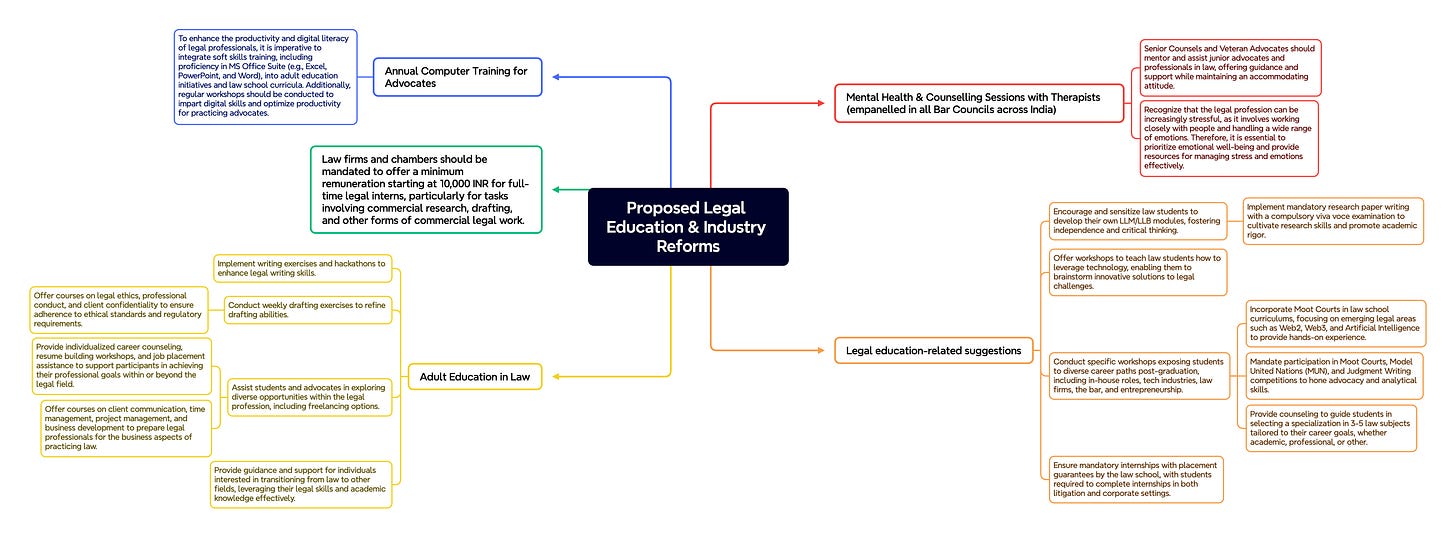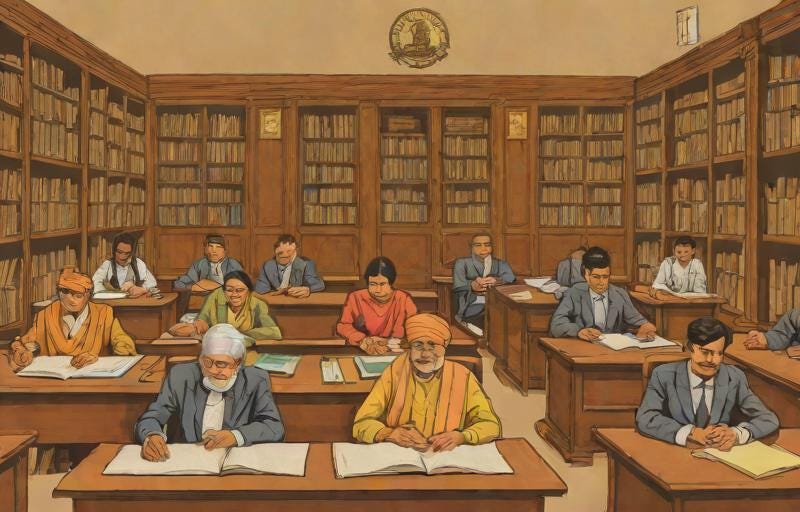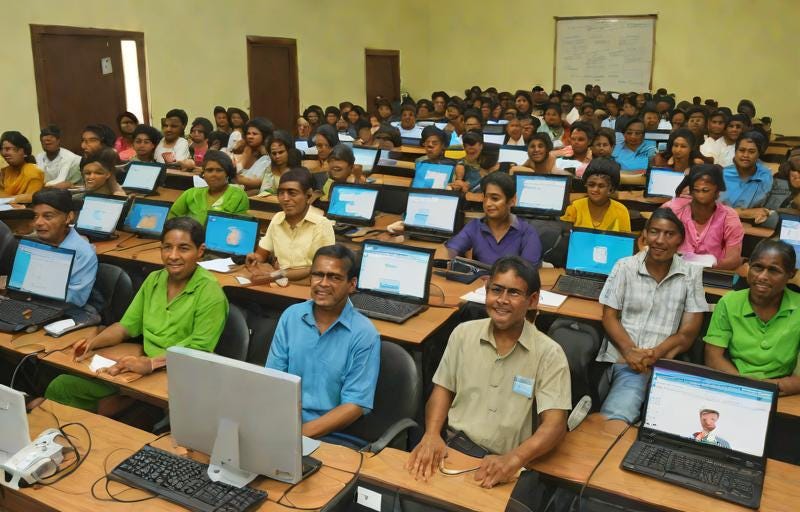Recommendations on Legal Industry & Education Reforms to the Bar Council of India
From the Secretariat and its Committees
With respect, we present these recommendations for pertinent reforms and measures to the Bar Council of India, acting on behalf of the Committees and Secretariat of the Indian Society of Artificial Intelligence and Law. This recommendation is open to all, originating from the Secretariat and drawing upon anonymous contributions from numerous legal professionals and academics representing diverse areas of law.
We also have a special update: anyone who becomes a member / subscriber to the Indian Society of Artificial Intelligence at indian.substack.com will be offered 500 credits for their annual subscription or membership to access GenAI tools offered by WebNyay.
Upgrade your subscription to paid, or apply for membership at executive@isail.co.in, today.
The mind map depicts the recommendations and suggestions.
We hope that these recommendations would be appreciated in good faith.
Mental Health & Counselling Sessions with Therapists (empanelled in all Bar Councils across India)
Senior Counsels and Veteran Advocates should mentor and assist junior advocates and professionals in law, offering guidance and support while maintaining an accommodating attitude.
Recognize that the legal profession can be increasingly stressful, as it involves working closely with people and handling a wide range of emotions. Therefore, it is essential to prioritize emotional well-being and provide resources for managing stress and emotions effectively.
Legal education-related suggestions
Encourage and sensitize law students to develop their own LLM/LLB modules, fostering independence and critical thinking.
Implement mandatory research paper writing with a compulsory viva voce examination to cultivate research skills and promote academic rigor.
Offer workshops to teach law students how to leverage technology, enabling them to brainstorm innovative solutions to legal challenges.
Conduct specific workshops exposing students to diverse career paths post-graduation, including in-house roles, tech industries, law firms, the bar, and entrepreneurship.
Incorporate Moot Courts in law school curriculums, focusing on emerging legal areas such as Web2, Web3, and Artificial Intelligence to provide hands-on experience.
Mandate participation in Moot Courts, Model United Nations (MUN), and Judgment Writing competitions to hone advocacy and analytical skills.
Provide counseling to guide students in selecting a specialization in 3-5 law subjects tailored to their career goals, whether academic, professional, or other.
Ensure mandatory internships with placement guarantees by the law school, with students required to complete internships in both litigation and corporate settings.
Adult Education in Law
Implement writing exercises and hackathons to enhance legal writing skills.
Conduct weekly drafting exercises to refine drafting abilities.
Offer courses on legal ethics, professional conduct, and client confidentiality to ensure adherence to ethical standards and regulatory requirements.
Assist students and advocates in exploring diverse opportunities within the legal profession, including freelancing options.
Provide individualized career counseling, resume building workshops, and job placement assistance to support participants in achieving their professional goals within or beyond the legal field.
Offer courses on client communication, time management, project management, and business development to prepare legal professionals for the business aspects of practicing law.
Provide guidance and support for individuals interested in transitioning from law to other fields, leveraging their legal skills and academic knowledge effectively.
Law firms and chambers should be mandated to offer a minimum remuneration starting at 10,000 INR for full-time legal interns, particularly for tasks involving commercial research, drafting, and other forms of commercial legal work.
Annual Computer Training for Advocates
To enhance the productivity and digital literacy of legal professionals, it is imperative to integrate soft skills training, including proficiency in MS Office Suite (e.g., Excel, PowerPoint, and Word), into adult education initiatives and law school curricula. Additionally, regular workshops should be conducted to impart digital skills and optimize productivity for practicing advocates.
To offer comments and suggestions, please feel free to reach out for suggestions at executive@isail.co.in.









